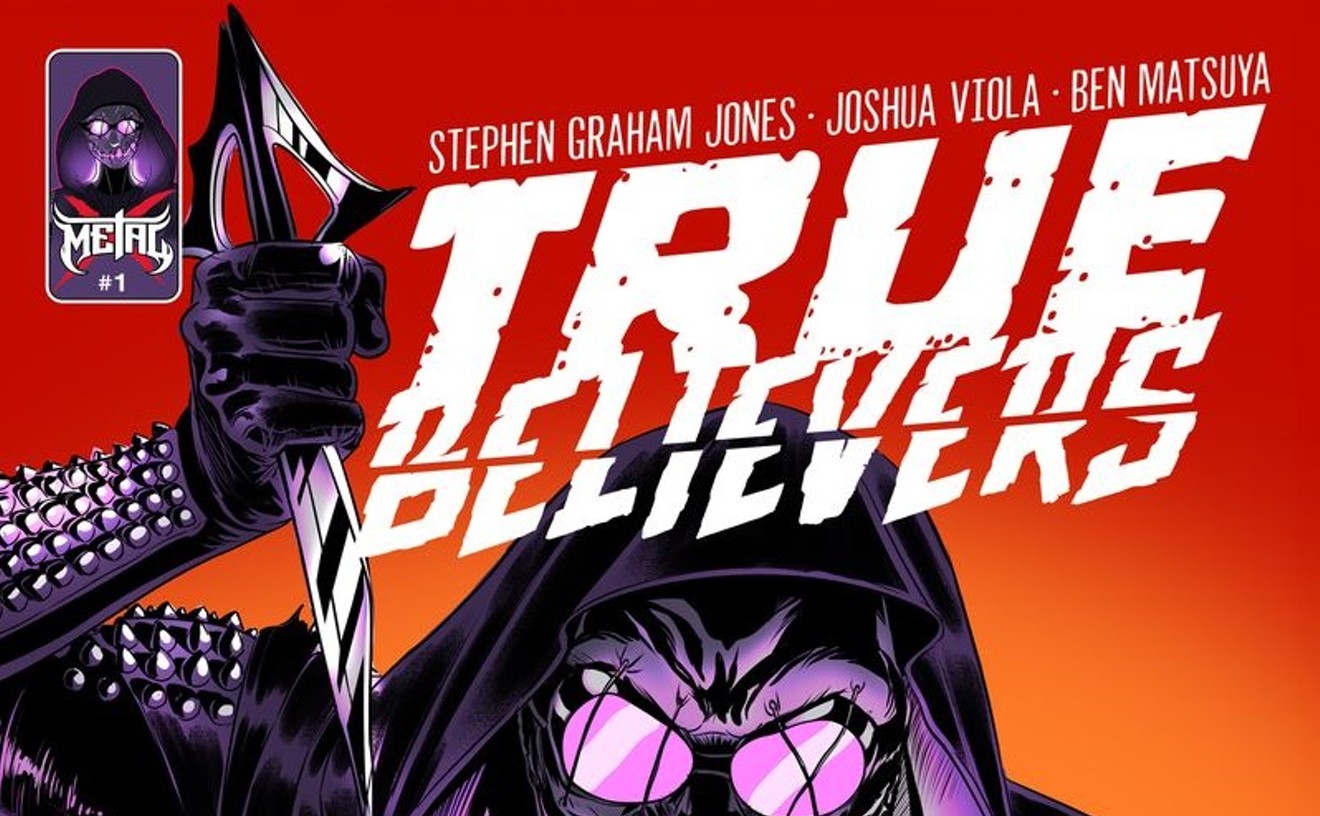Study the power plays -- or simply enjoy the show -- while the run of Wicked continues at the Buell Theatre through May 20. Tickets start at $35, find more information at the Denver Center website.
Here are five examples of Wicked political power plays. Warning: spoilers within.
5. Oppression and MurderNo list of political power plays would be complete without mentioning the acts that dictators like the Wizard commit purely for selfish personal gain. They strip away rights, manipulate and use people to acquire power, lie to keep the masses in submission, commit injuries without regard for suffering, and kill for convenience. They have little or no regard for the collateral damage of their exploits; left unchecked, we all know how far this callousness can go. Ultimately, even Elphaba is not a match for it.
Really, there's only one plot element in Wicked that is at odds with the behavior of repressive regimes throughout history, and that is that most of the bad guys get what is coming to them before a lot of damage can be done. In real life, people have gotten away with far worse, for far longer.
4. Revisionist History "A man's called a traitor or liberator, a rich man's a thief or philanthropist; is one a crusader or ruthless invader? It's all in which label is able to persist. There are precious few at ease with moral ambiguities; so we act as though they don't exist."
The Wizard is right; "historic" accounts have always, always been subjective to whoever is writing them. Trying to get a more nationalistic, blindly faithful constituency? Censor everything that contradicts the party line, as Stalin was known to do. Revising history so that it portrays you more favorably, erases moral ambiguity, and unites you and your followers against a common enemy is a play to win power by stoking a feverish but blind patriotism, and the Wizard proves himself not above doing it -- or even excusing it, in a clever musical number about the tactic, called "Wonderful."
3. Scapegoating and Subsequent Witch Hunt "I have a personal score to settle with Elph -- with the WITCH! It's due to her I'm made of tin; her spell made this occur. So for once, I'm glad I'm heartless -- I'll be heartless killing her!" -- Boq, or the Tin ManElphaba's well-intentioned actions -- and sometimes, not her own actions at all -- draw ire from a public that is volatile, looking for someone to blame, and susceptible to the regime's lies. With some help, the blame starts to mount and pressure builds, finally boiling over into a literal witch hunt, complete with pitchforks. They stop short of throwing her in a pond to see if she floats, but we can totally see where this is going:
The top 2 are on Page 2 2. Popularity-Seeking "Think of celebrated heads of state or especially great communicators; did they have brains or knowledge? Don't make me laugh. They were popular! Please. It's all about popular. It's not about aptitude, it's the way you're viewed -- so it's very shrewd to be very, very popular, like me." -- Glinda the "Good"Glinda's ambition and endless pursuit of popularity is Machiavellian. Where her perceived "goodness" is concerned, Glinda has a head start in being fair, blonde and beautiful -- all things that society subconsciously associates with goodness, if Disney movies are any indication. There is no doubt that she uses these, along with other charms, as a way to ingratiate herself with people and move ahead, eventually becoming "Glinda the Good." Why is this a bad thing? Well, many a dictator has created a following by being charismatic. In fact, a lot of people consider that to be one of the defining characteristics of fascist dictators.
1. Propaganda and Rumor "Citizens of Oz: There is an enemy that must be found and captured. Believe nothing she says. She is evil..."--Madame Morrible
Madame Morrible, press secretary for the Wizard -- a manipulative dictator seeking to strip animals of their rights and oppress Ozians -- leads the campaign labeling Elphaba a "Wicked Witch," systematically feeding the residents of Oz an ongoing stream of lies and misinformation to keep them hating her. Sound familiar?










